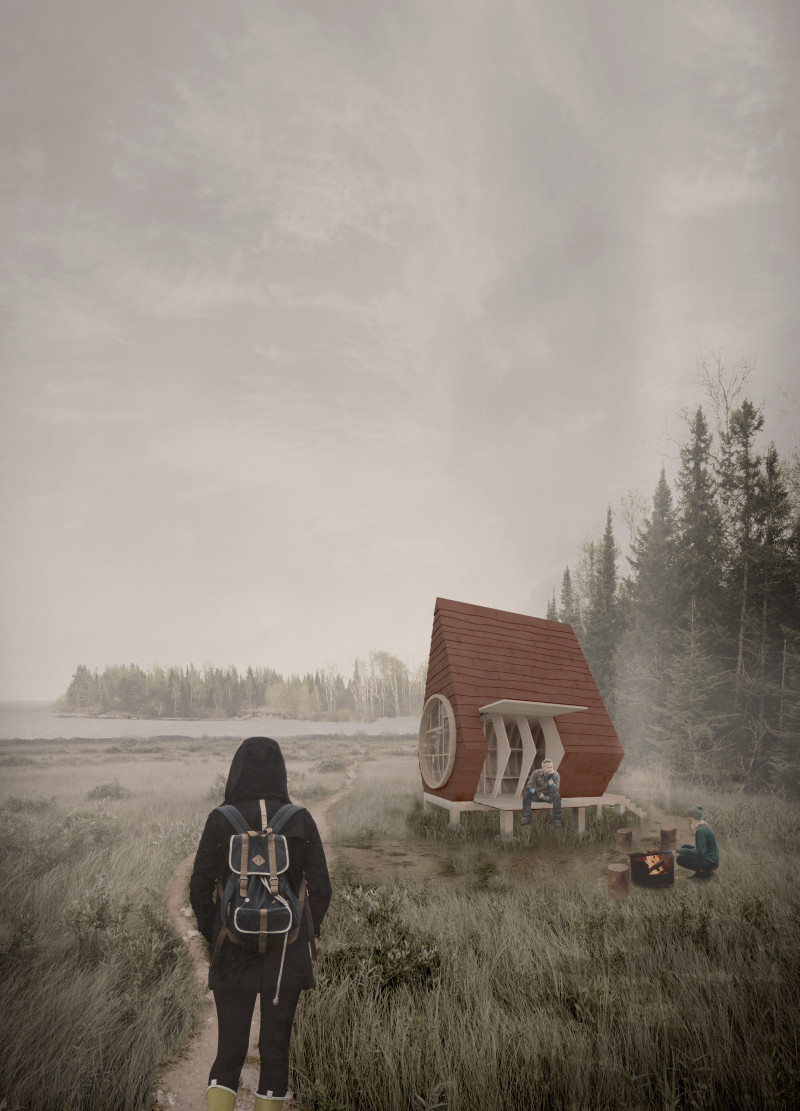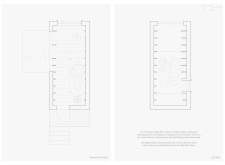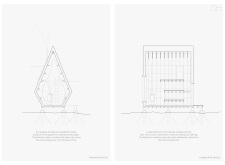5 key facts about this project
## Project Overview
Located along the coastlines of Latvia, the "Little Red Things" project introduces a series of lightweight, eco-friendly trekking cabins designed to blend with the natural environment. The intent is to provide functional living spaces that promote an immersive experience with the local ecosystem. Drawing inspiration from natural elements, these cabins reflect a commitment to sustainability and environmental consciousness.
## Design Concept and Aesthetics
### Architectural Form and Space
The design is characterized by a striking red exterior and an angular roof that emulates the surrounding tree silhouettes, optimizing the shedding of rain and snow. The interior's curvilinear layout contrasts the exterior, using continuous lines and gentle curves to create an inviting atmosphere. This space planning enhances warmth and approachability for occupants. Symbolically, the cabins are reminiscent of amber washed ashore, fostering a relationship between the structures and their coastal context.
### Interior Features and Layout
Accommodating up to four guests within approximately 12 square meters, the cabins feature vertical space optimization through two single bunk beds and an additional loft area. Common areas include a dining space and a kitchen section with a wood-burning fireplace, which serves a dual purpose of warmth and cooking. Large windows facilitate natural light and outdoor views, enhancing user engagement with the surroundings. A folding door provides access to an outdoor deck, promoting interaction with the natural landscape.
## Materiality and Sustainability
### Material Selection
The cabins utilize birch plywood for their vertical structure and interior features, providing both aesthetic appeal and structural integrity. The inclusion of 120mm of closed-cell rigid insulation ensures thermal efficiency, crucial for comfort in the coastal climate. Live edge siding connects the cabins to their environment while reflecting the local texture. The wood-burning fireplace allows for a sustainable heating source, utilizing locally sourced firewood.
### Energy Efficiency Commitment
The project emphasizes minimizing environmental impact through careful material choices and design principles that enhance energy efficiency. This approach contributes to a reduced carbon footprint, aligning with contemporary goals of sustainable architectural practice. The overall design reflects a strategic integration of functionality and ecological responsibility, exemplifying sustainable living in a coastal setting.






















































